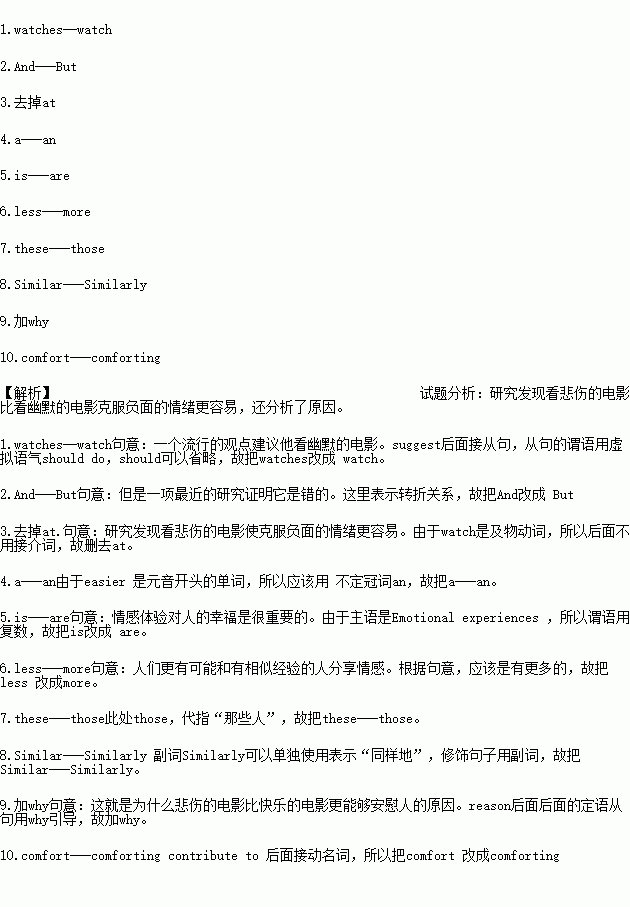题目内容
短文改错
How can a person recover from emotional problems? A popular opinion suggests that he watches humorous films. And a recent study proves this to be wrong. The study also shows that watching at sad films can make getting over a negative mood a easier job. Emotional experiences is important to people’s well-being. People are less likely to share their feelings with these who have had similar experiences. Similar, people prefer movies that reflect their mood. That’s the reason a sad film can contribute to comfort a sad person more than a pleasant one.
练习册系列答案
相关题目

